David McRaney's Blog, page 11
February 7, 2022
YANSS 225 – How a better understanding of neuromarketing can make you a smarter consumer
In this episode, neuromarketing experts Prince Ghuman and Matt Johnson discuss the many strange examples from their book, Blindsight, in an effort to make us all smarter consumers, empowered to make better decisions after touring a showcase of all the less-obvious ways marketing, advertising, venues, restaurants, shopping malls, casinos, social media companies, and more, knowingly use neuroscience and psychology to affect our behavior.
Download â iTunes â Stitcher â RSS â Patreon â Soundcloud – Omny – Spotify
Here is the official description of the book:
“Ever notice that all watch ads show 10:10 as the time? Or that all fast-food restaurants use red or yellow in their logos? Or that certain stores are always having a sale?
You may not be aware of these details, yet they’ve been influencing you all along.

Every time you purchase, swipe, or click, marketers are able to more accurately predict your behavior. These days, brands know more about you than you know about yourself. Blindsight is here to change that.
With eye-opening science, engaging stories, and fascinating real-world examples, neuroscientist Matt Johnson and marketer Prince Ghuman dive deep into the surprising relationship between brains and brands. In Blindsight, they showcase how marketing taps every aspect of our mental lives, covering the neuroscience of pain and pleasure, emotion and logic, fear and safety, attention and addiction, and much more.
We like to think of ourselves as independent actors in control of our decisions, but the truth is far more complicated. Blindsight will give you the ability to see the unseeable when it comes to marketing, so that you can consume on your own terms. On the surface, you will learn how the brain works and how brands design for it. But peel back a layer, and you’ll find a sharper image of your psychology, reflected in your consumer behavior.
This book will change the way you view not just branding, but yourself, too.”
Links and SourcesDownload â iTunes â Stitcher â RSS â Patreon â Soundcloud – Omny – Spotify
January 23, 2022
YANSS 224 – How to have better conversations with loved ones (and just about anyone) about difficult topics (and just about anything)
In this episode of the You Are Not So Smart Podcast, we sit down once again with Misha Glouberman, an expert on conflict and conversation, to discuss how best to improve your communication skills and turn what you suspect will be a difficult interaction into something marvelous and fruitful – the sort of talk that strengthens your relationship with the other person and leaves you both feeling like you gained and learned something â the kind you’d like to have again.
Mentioned in the show, here is the link to a free online class with Misha Glouberman on Feb 1st.

Download â iTunes â Stitcher â RSS â Spotify – Patreon â  Soundcloud – Omny
LINK TO THE FREE ONLINE WORKSHOP ON FEBRUARY FIRST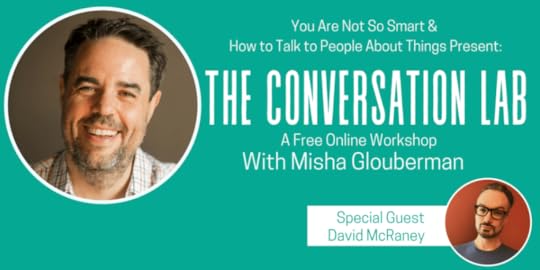
Misha Glouberman teaches people how to talk about things, both in the classroom and within organizations, and he also works as a professional facilitator, which means he helps people design and run conferences and meetings. He also lectures, hosts Trampoline Hall (which has a podcast) â where he interviews the speakers afterfield and fields questions from the audience â and he is the co-author of the book The Chairs Are Where the People Go, a collection of his dictated musings about life recorded and edited by author Sheila Heti.
TWITTER: @mishaglouberman

Download â iTunes â Stitcher â RSS â Spotify – Patreon â  Soundcloud – Omny

Support the show directly by becoming a patron! Get episodes one-day-early and ad-free. Head over to the YANSS Patreon Page for more details.

Links and Sources
Download â iTunes â Stitcher â RSS â Spotify – Patreon â Soundcloud – Omny
Illustration: Marc Wathieu
Music: Caravan Palace
January 9, 2022
YANSS 223- If machines can learn how to argue with, debate, and persuade human beings, what does that say about the nature of opinion and belief?
This episode, featuring Andy Luttrell of the Opinion Science Podcast, is all about a machine, built by IBM, that can debate human beings on any issue. This machine raises a strange question. Is persuasion with language, using arguments (and the ability to alter another personâs attitudes, beliefs, values, opinions, and behavior) a uniquely human phenomenon, or could you be persuaded to change your mind by an artificial intelligence designed to do just that? If so, what does that say about opinions, our arguments, and in the end, our minds?
Download â iTunes â Stitcher â RSS â Patreon â Soundcloud – Omny – Spotify
From the official description over at Opinion Science:
“In 2019, IBM introduced the world to Project Debater: an AI system that could go up against humans to debate anything. In this episode, we trace Project Debaterâs growth from just an idea to a fully fledged piece of technology and the public debates itâs engaged in. And it raises a bigger question: is persuasion a fundamentally human ability or is it really something that machines are capable of?
We hear from IBM engineer and project leaders Noam Slonim, expert debaters Harish Natarajan, Dan Zafrir, and Noa Ovadia, communication neuroscientist Elisa Baek, and best-selling author Daniel Pink.
To learn more about Project Debater, visit IBMâs Project Debater website and watch this great mini documentary about the system.”
Links and SourcesDownload â iTunes â Stitcher â RSS â Patreon â Soundcloud – Omny – Spotify
December 28, 2021
YANSS 222 – How to use the power of surprise to change, grow, and improve your life and the lives of others
In this episode, Micheal Rousell, author of The Power of Surprise, explains the science of surprise at the level of neurons and brain structures, and then talk about how surprises often lead to the stories we tell ourselves about ourselves, the different personal narratives that guide our behaviors and motivations and goals, and, perhaps most importantly, our willingness to be surprised again so that we can change and grow.
In the show, you will how we can use the current understanding of how surprise leads to learning, and how learning depends on interpretation, to improve our lives, and the lives of others
Download â iTunes â Stitcher â RSS â Patreon â Soundcloud – Omny – Spotify
Here is the official description of his new book:
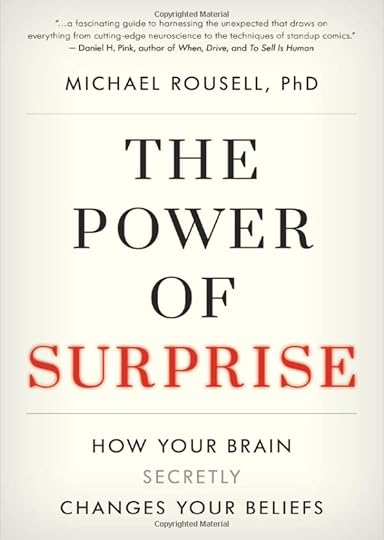
“Michael Rousell examines the rich and complex nuances of the science of surprise and shows us how we can use it strategically to enrich lives.
Random events transform us. After studying formative events, moments that define us, for over three decades, Michael Rousell discovered that most of them took place during a spark of surprise. This breakthrough launched a fascinating journey from neuroscience to stand-up comedy. Rousell draws on research from a wide variety of brain science disciplines (cognition, motivation, neuroscience, psychology, artificial intelligence, persuasion, evolution, and learning), then examines those who already use surprise strategically (comedians, film directors, entertainers, magicians, and novelists). This examination illustrates the hidden, yet critical features inherent in surprise, while demystifying the complexities.
Surprise evolved as a mechanism to instantly change our beliefs. Rousell shows how surprising events produce invisible influence because they open a window to spontaneous belief change with no warning or conscious awareness. Youâll see how seemingly minor features of surprise create profound differences and can be used to strategically enrich lives, create positive mindsets, and maximize influence.”
Links and SourcesDownload â iTunes â Stitcher â RSS â Patreon â Soundcloud – Omny – Spotify
December 12, 2021
YANSS 221 – How a science educator in Oklahoma uses a portable planetarium to convert flat earthers
In this episode we sit down with Joey Rodman (@okiespacequeen), a science educator in Oklahoma whose recent Twitter thread about using a portable planetarium to reach out to flat earthers went viral thanks to their counterintuitive advice about how to discuss science denial and conspiracy theories with people who may have never interacted with a scientist before.
After years of on-the-ground, one-on-one conversations, Joey has developed a technique similar to those we’ve discussed on the show, including street epistemology motivational interviewing, deep canvassing, and even the socratic method. It shares elements with all of these, but was developed in-person through conversations with people who met with Joey in their communities and home towns.
Download â iTunes â Stitcher â RSS â Patreon â Soundcloud – Omny – Spotify
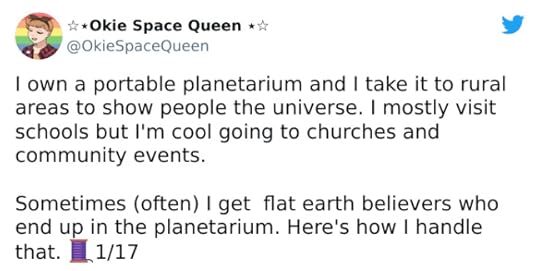
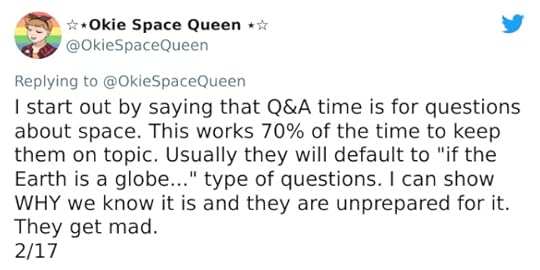

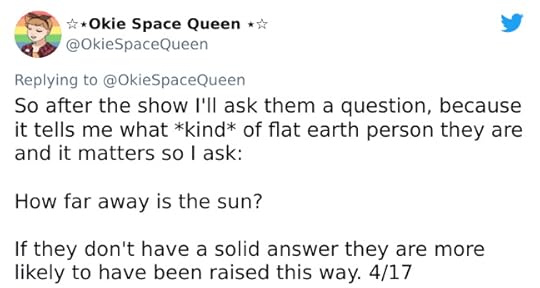
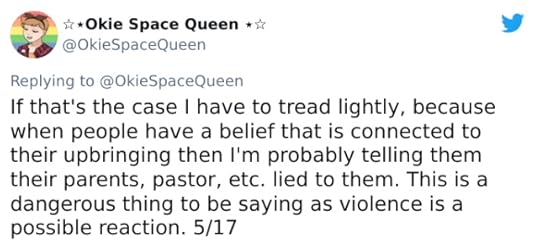
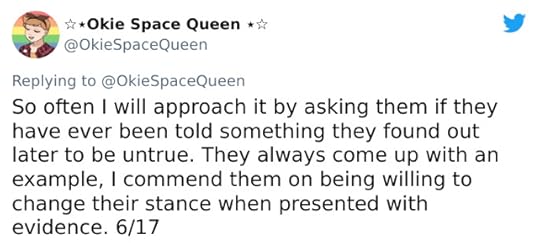
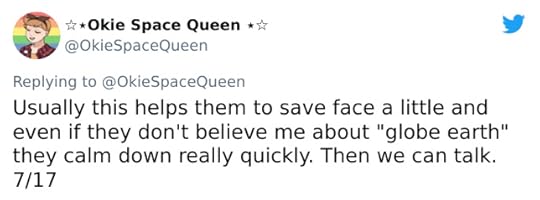
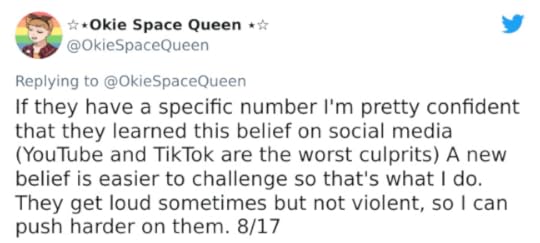
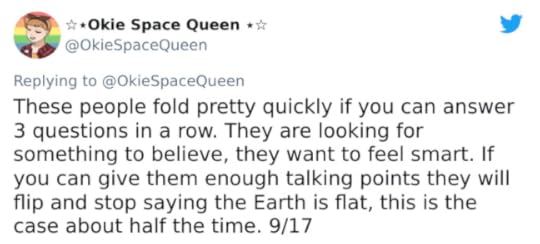
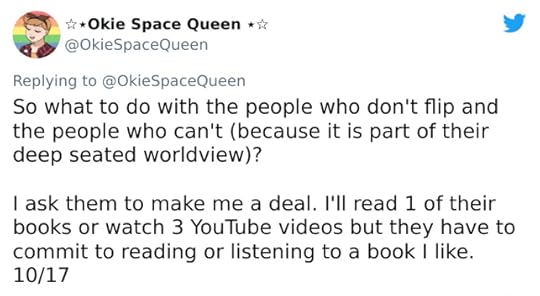
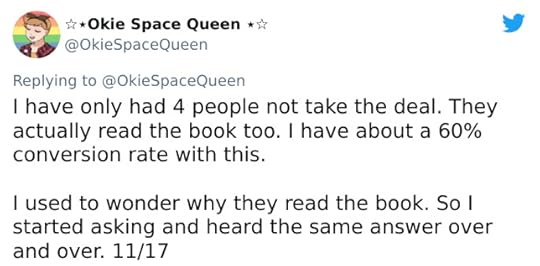
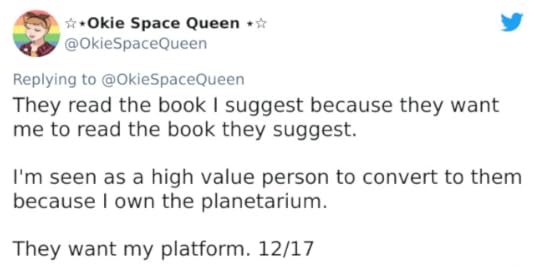
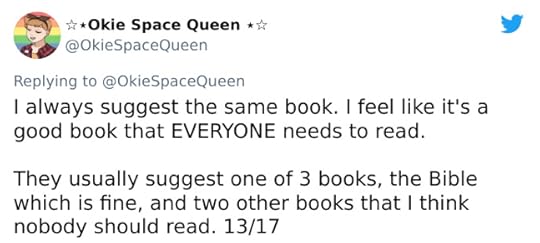
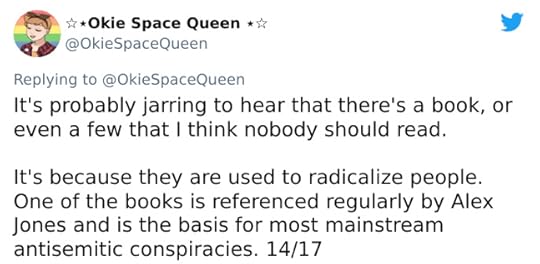
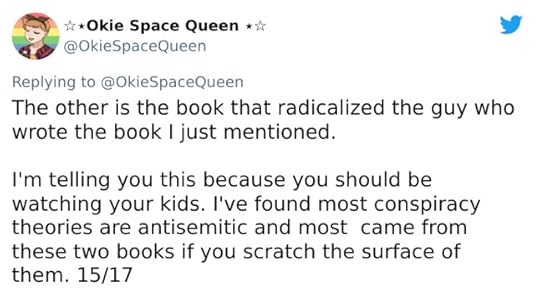
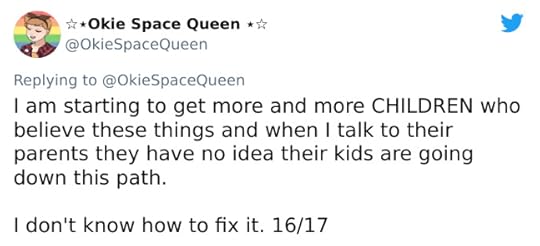
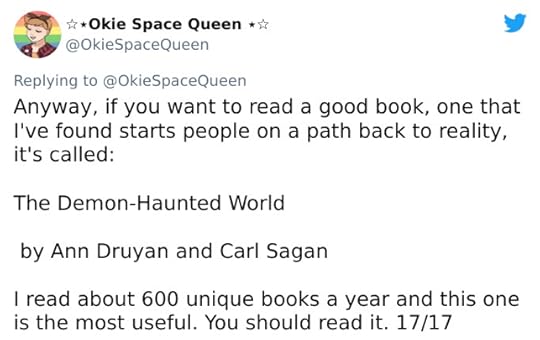 Links and Sources
Links and SourcesDownload â iTunes â Stitcher â RSS â Patreon â Soundcloud – Omny – Spotify
November 30, 2021
YANSS 220 – How Henry Gee condensed a few billion years of weird into a very short history of life on Earth
In this episode, we sit down with Henry Ernest Gee, the paleontologist, evolutionary biologist and senior editor of the scientific journal Nature.
I was honored to get the opportunity chat with one of the absolute titans of science journalism and science communication about his new book: A Very Short History of Life on Earth, 4.6 billion years in 12 chapters.
Download – iTunes – Stitcher – RSS – Patreon – Soundcloud – Omny – Spotify
Here is the official description of his new book:
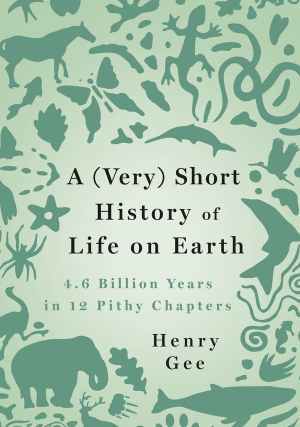
“For billions of years, Earth was an inhospitably alien place – covered with churning seas, slowly crafting its landscape by way of incessant volcanic eruptions, the atmosphere in a constant state of chemical flux. And yet, despite facing literally every conceivable setback that living organisms could encounter, life has been extinguished and picked itself up to evolve again. Life has learned and adapted and continued through the billions of years that followed. It has weathered fire and ice. Slimes begat sponges, who through billions of years of complex evolution and adaptation grew a backbone, braved the unknown of pitiless shores, and sought an existence beyond the sea.
From that first foray to the spread of early hominids who later became Homo sapiens, life has persisted, undaunted. A (Very) Short History of Life is an enlightening story of survival, of persistence, illuminating the delicate balance within which life has always existed, and continues to exist today. It is our planet like you’ve never seen it before.
Life teems through Henry Gee’s lyrical prose – colossal supercontinents drift, collide, and coalesce, fashioning the face of the planet as we know it today. Creatures are engagingly personified, from ‘gregarious’ bacteria populating the seas to duelling dinosaurs in the Triassic period to magnificent mammals with the future in their (newly evolved) grasp. Those long extinct, almost alien early life forms are resurrected in evocative detail. Life’s evolutionary steps – from the development of a digestive system to the awe of creatures taking to the skies in flight – are conveyed with an alluring, up-close intimacy.”
Links and SourcesDownload – iTunes – Stitcher – RSS – Patreon – Soundcloud – Omny – Spotify
Henry Gee’s Website
November 14, 2021
YANSS 219 – How social science is helping social media fight the spread of misinformation
In this episode we sit down with expert in behavioral economics Evelyn Gosnell, who is also the managing director of Irrational Labs, an organization that uses social science to help other organizations make big decisions, fight misinformation, and design better products and services.
In a new information ecosystems where our primate brains, which evolved to spread gossip and argue and debate and deliberate and play status games and manage our reparations among trusted peers and signal our attitudes about what we perceive as “us” versus what we perceive as “them,” several organizations are helping the places where we gather to do these things create better environments in which to do them.
Evelyn Gosnell is the managing director of one of those organizations, Irrational Labs, and on this show – a podcast about the science of judgment, decision making, bias, and reasoning – she will give us a behind-the-scenes look at how they use the latest research, and conduct their own research, to improve the world.
 Evelyn Gosnell
Evelyn GosnellFrom Evelyn Gosnell’s bio:
“Evelyn is a Managing Director at Irrational Labs and frequent speaker in behavioral economics and consumer psychology.
She is an expert in helping companies use the science of decision-making to better understand how real people think and behave, thereby creating better products and services for them. Evelyn was previously the Head of Product Development and Behavioral Science at Shapa, a health startup founded by behavioral scientist Dan Ariely.
Evelyn’s work spans a broad array of industries: she has worked with Google, Procter & Gamble, Intuit, The World Bank, Microsoft, AARP, and Indeed, among others. Evelyn also led the development of Irrational Labs’ Behavioral Economics Bootcamp, and is passionate about training others to use behavioral science methodologies.
Evelyn transitioned to the world of behavioral economics from a background in Product Management and Marketing. She started her career at Christian Dior Parfums in Paris and subsequently worked in various product management, marketing, and sales positions.
Evelyn holds a B.A. in cultural anthropology from Duke University and graduated summa cum laude. She also completed a Master’s degree in Marketing from the Institut d’Etudes Politiques in France. She speaks fluent French and Russian.”


Support the show directly by becoming a patron! Get episodes one-day-early and ad-free. Head over to the YANSS Patreon Page for more details.

Links and Sources
Download – iTunes – Stitcher – RSS – Spotify – Patreon – Soundcloud – Omny
October 31, 2021
YANSS 218 – How anxiety hides in our unhealthy habits, why you can’t think your way out of it, and science says you should do instead
In this episode, Dr. Jud Brewer, a neuroscientist and addiction psychiatrist, discusses the biological origins of anxiety and how to unwind our feedback loops using techniques derived from his lab’s research.
Since his last appearance on the show, Dr. Jud has written and published a book which is now a NYT bestseller titled Unwinding Anxiety: New Science Shows How to Break the Cycles of Worry and Fear to Heal Your Mind which he describes as, “a clinically proven step-by-step plan to break the cycle of worry and fear that drives anxiety and addictive habits.”
Download – iTunes – Stitcher – RSS – Patreon – Soundcloud – Omny – Spotify
Brewer is the author of The Craving Mind: From Cigarettes to Smartphones to Love — Why We Get Hooked and how We Can Break Bad Habits — and his TED Talk on how to change a bad habit has more than 12 million views. He is the Director of Research and Innovation at the Mindfulness Center and associate professor in psychiatry at the School of Medicine at Brown University, as well as a research affiliate at MIT. He has held research and teaching positions at Yale University and the University of Massachusetts’ Center for Mindfulness.
Here is the official description of his new book, Unwinding Anxiety:
“We think of anxiety as everything from mild unease to full-blown panic.But it’s also what drives the addictive behaviors and bad habits we use to cope (e.g. stress eating, procrastination, doom scrolling and social media). Plus, anxiety lives in a part of the brain that resists rational thought. So we get stuck in anxiety habit loops that we can’t think our way out of or use willpower to overcome.
Dr. Brewer teaches us map our brains to discover our triggers, defuse them withthe simple but powerful practice of curiosity, and to train our brains using mindfulness and other practices that his lab has proven can work.
Distilling more than 20 years of research and hands-on work with thousands of patients, including Olympic athletes and coaches, and leaders in government and business, Dr. Brewer has created a clear, solution-oriented program that anyone can use to feel better — no matter how anxious they feel.”
Willpower is weaker than you think: you cannot think your way out of anxiety.Our brains have tricked us into thinking that we need to be anxious to get things done and perform well. Anxiety doesn’t actually improve performance.Fear + Uncertainty = Anxiety. This is our brain’s survival system trying to help, but getting lost in today’s world.Anxiety is a habit loop. Anxiety and worry feed on each other, getting us stuck, and making both worse.Anxiety hides in unhealthy habits (e.g. stress eating, procrastination, distraction with social media)The key component in the process of unwinding anxiety is learning to be curious.You do need to learn how to be mindful and aware,but you don’t have to learn to meditate. Curiosity is a natural way into being mindfully aware.You have to know how your mind works, before you can work with itYou can hack your brain’s reward system to overcome anxiety (and other unhealthy habits)Links and SourcesDownload – iTunes – Stitcher – RSS – Patreon – Soundcloud – Omny – Spotify
The Apps ( use code YANSS20 for 20% off )
October 17, 2021
YANSS 217 – How brains turn noise into signal, chaos into order, electrical spikes into meaning, and how new technology can expand subjective reality in ways never before possible
In this episode, we sit down with neuroscientist David Eagleman to learn how brains turn noise into signal, chaos into order, electrical spikes into meaning, and how new technology can expand subjective reality in ways never before possible.
In his new book, Livewired, Eagleman explores how brains come into the world “half baked” so they can create reality out of the inputs and experiences available. Thanks to that plug-and-play plasticity, not only can we return senses to those who’ve lost them, but add to anyone new senses that we have yet to imagine.


 Dr. David Eagleman
Dr. David EaglemanFrom his official bio:
“David Eagleman is a neuroscientist and a New York Times bestselling author. He heads the Center for Science and Law, a national non-profit institute, and serves as an adjunct professor at Stanford University. He is best known for his work on sensory substitution, time perception, brain plasticity, synesthesia, and neurolaw.
He is the writer and presenter of the international PBS series, The Brain with David Eagleman, and the author of the companion book, The Brain: The Story of You.
Beyond his 100+ academic publications, he has published many popular books. His bestselling book Incognito: The Secret Lives of the Brain, explores the neuroscience “under the hood” of the conscious mind: all the aspects of neural function to which we have no awareness or access. His work of fiction, SUM, is an international bestseller published in 28 languages and turned into two operas. Why the Net Matters examines what the advent of the internet means on the timescale of civilizations. The award-winning Wednesday is Indigo Blue explores the neurological condition of synesthesia, in which the senses are blended. The Runaway Species, co-authored with music composer Anthony Brandt, explores the neuroscience and behavior behind human creativity.
Eagleman is a TED speaker, a Guggenheim Fellow, a winner of the McGovern Award for Excellence in Biomedical Communication, a Next Generation Texas Fellow, Vice-Chair on the World Economic Forum’sGlobal Agenda Council on Neuroscience & Behaviour, a research fellow in the Institute for Ethics and Emerging Technologies, Chief Scientific Advisor for the Mind Science Foundation, and a board member of The Long Now Foundation. He has served as an academic editor for several scientific journals. He was named Science Educator of the Year by the Society for Neuroscience, and was featured as one of the Brightest Idea Guys by Italy’s Style magazine. He is founder of the company BrainCheck and the cofounder of the company NeoSensory.
He was the scientific advisor for the television drama Perception, and has been profiled on the Colbert Report, NOVA Science Now, the New Yorker, CNN’s Next List, and many other venues. He appears regularly on radio and television to discuss literature and science.”
TWITTER: @davideagleman


LIVEWIRED: The Inside Story of the Ever-Changing Brain
Outstanding popular science. – Kirkus (Starred Review)
“[D]elivers an intellectually exhilarating look at neuroplasticity…. Eagleman’s skill as teacher, bold vision, and command of current research will make this superb work a curious reader’s delight.” – Publishers Weekly (Starred Review)
“Since the passing of Isaac Asimov, we haven’t had a working scientist like Dr. Eagleman, who engages his ideas in such a variety of modes. “Livewired” reads wonderfully, like what a book would be if it were written by Oliver Sacks and William Gibson, sitting on Carl Sagan’s front lawn.” – Wall Street Journal
“The pages of LIVEWIRED are chock-full of mind bending ideas and dazzling insights. Eagleman’s infectious enthusiasm, his use of fascinating anecdotes, and his clear, effortless prose render the secrets of the brain’s adaptability into a truly compelling page-turner.” – Khaled Hosseini, author of The Kite Runner
“Fascinating work… recommended for readers interested in neuroscience, technology, and the intersection of the two.” – Library Journal (starred review)
“David Eagleman, the Jolly Sherlock Holmes of neuroscience, makes me believe that the universe of possibility required to create utopia is already housed in each of our brains. His knowledge and enthusiasm are intoxicating. His book demonstrates the principle about which he is writing; my mind has been changed by his words.” –
Russell Brand
“Livewired is terrific. If you have a mind, David Eagleman will boggle it for you.” – Hugh Laurie
“David’s a brilliant writer and thinker, and he knows more about how we tick and why we tick than anyone I know.” – Neil Gaiman, author
“I read David Eagleman’s magnificent new book about a month ago, and I haven’t stopped thinking about it since. Eagleman has (once again) permanently altered the way I experience my brain’s complex and creative dance with the outside world.” – Annaka Harris, author of Conscious
“An altogether fascinating tour of the astonishing plasticity and interconnectedness inside the cranial cradle of all of our experience of reality, animated by Eagleman’s erudite enthusiasm for his subject, aglow with the ecstasy of sensemaking that comes when the seemingly unconnected snaps into a consummate totality of understanding.”– Maria Popova, Brain Pickings


Support the show directly by becoming a patron! Get episodes one-day-early and ad-free. Head over to the YANSS Patreon Page for more details.

Links and Sources
Download – iTunes – Stitcher – RSS – Spotify – Patreon – Soundcloud – Omny
October 3, 2021
YANSS 216 – How the answer to whether a straw has one hole or two reveals the hidden geometry that shapes everything from pandemics to democracy
In this episode we sit down with Jordan Ellenberg, the John D. MacArthur Professor of Mathematics at the University of Wisconsin-Madison.
His writing has appeared in Slate, the Wall Street Journal, the New York Times, the Washington Post, and the Boston Globe, and he is the New York Times bestselling author of How Not to Be Wrong – but in this episode we will discuss his new book, Shape: The hidden geometry of information, biology, strategy, democracy and everything else.
The official description of Shape:

From the New York Times-bestselling author of How Not to Be Wrong, himself a world-class geometer, a far-ranging exploration of the power of geometry, which turns out to help us think better about practically everything
How should a democracy choose its representatives? How can you stop a pandemic from sweeping the world? How do computers learn to play chess, and why is learning chess so much easier for them than learning to read a sentence? Can ancient Greek proportions predict the stock market? (Sorry, no.) What should your kids learn in school if they really want to learn to think? All these are questions about geometry.
For real. If you’re like most people, geometry is a sterile and dimly-remembered exercise you gladly left behind in the dust of 9th grade, along with your braces and active romantic interest in pop singers. If you recall any of it, it’s plodding through a series of miniscule steps, only to prove some fact about triangles that was obvious to you in the first place. That’s not geometry. OK, it is geometry, but only a tiny part, a border section that has as much to do with geometry in all its flush modern richness as conjugating a verb has to do with a great novel.
Shape reveals the geometry underneath some of the most important scientific, political, and philosophical problems we face. Geometry asks: where are things? Which things are near each other? How can you get from one thing to another thing? Those are important questions. The word “geometry,” from the Greek, has the rather grand meaning of “measuring the world.” If anything, that’s an undersell. Geometry doesn’t just measure the world – it explains it. Shape shows us how.
 Jordan Ellenberg
Jordan EllenbergFrom his official bio:
Jordan Ellenberg grew up in Potomac, MD, the child of two statisticians. He excelled in mathematics from a young age, and competed for the U.S. in the International Mathematical Olympiad three times, winning two gold medals and a silver. He went to college at Harvard, got a master’s degree in fiction writing from Johns Hopkins, and then returned to Harvard for his Ph.D. in math. After graduate school, he was a postdoc at Princeton. In 2004, he joined the faculty of the University of Wisconsin at Madison, where he is now the John D. MacArthur Professor of Mathematics. (Professional page). Ellenberg’s research centers on the fields of number theory and algebraic geometry, the parts of mathematics which address fundamental questions about algebraic equations and their solutions in whole numbers. Ellenberg’s research has uncovered new and unexpected connections between these subjects and algebraic topology, the study of abstract high-dimensional shapes and the relations between them. Ellenberg was a plenary speaker at the 2013 Joint Mathematics Meetings, the largest mathematics conference in the world, and he has lectured about his research around the United States and in ten other countries. He has held an NSF-CAREER grant and an Alfred P. Sloan Fellowship, in 2013 he was named one of the inaugural class of Fellows of the American Mathematical Society, in 2015 he was named a Guggenheim Fellow, and in 2018 a Simons Fellow.
Ellenberg has been writing for a general audience about math for more than fifteen years; his work has appeared in the New York Times, the Wall Street Journal, the Washington Post, Wired, The Believer, and the Boston Globe, and he is the author of the “Do the Math” column in Slate. His Wired feature story on compressed sensing appeared in the Best Writing on Mathematics 2011 anthology. His novel, The Grasshopper King, was a finalist for the 2004 New York Public Library Young Lions Fiction Award. His 2014 book How Not To Be Wrong was a New York Times and Sunday Times (London)bestseller and was one of Bill Gates’ top five summer books; it has been published in sixteen countries.
He lives in Madison, WI, with his wife Tanya Schlam and their two children.

Download – iTunes – Stitcher – RSS – Spotify – Patreon – Soundcloud – Omny


Support the show directly by becoming a patron! Get episodes one-day-early and ad-free. Head over to the YANSS Patreon Page for more details.

Links and Sources
Download – iTunes – Stitcher – RSS – Spotify – Patreon – Soundcloud – Omny
David McRaney's Blog
- David McRaney's profile
- 582 followers



